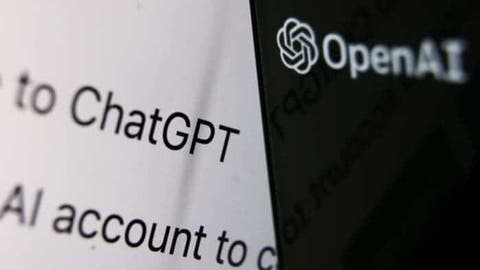Google, Facebook and Microsoft helped build the framework for AI. However, smaller startups are bringing it to the masses, forcing tech giants to speed up AI development. According to sources, due to the surge in attention surrounding ChatGPT, the internal pressure on Meta and Google is also increasing. In fact, they may even set aside some potential security concerns in order to move faster. ChatGPT is from OpenAI but before its launch, Facebook’s parent company, Meta had a similar Chatbot. But Yann LeCun, Meta’s chief AI scientist, said that unlike ChatGPT, which hit the road instantly with over 1 million users in five days, Meta’s Blenderbot was boring.
ChatGPT is quickly becoming mainstream as Microsoft works to incorporate it into its popular Office software and sell other businesses access to the tool. Microsoft recently invested billions of dollars in ChatGPT developer OpenAI. According to interviews with six former and current Google and Meta employees, the surge in attention to ChatGPT is fueling a surge of pressure within the tech giants.
Technology giants’ slow release of AI tools questioned
At Meta, staff recently shared an internal memo urging the company to speed up the approval process for AI projects to take advantage of the latest tech. While Google itself helped pioneer some of the tech underpinning ChatGPT, the company recently issued a “code red” around rolling out AI products and proposed what it calls a “green lane” to shorten the process of assessing and mitigating the potential harms of AI.
Tools such as ChatGPT and Dall-E 2, Stable Diffusion and other text-to-image conversions belong to the so-called generative AI (AIGC). They create their work by drawing on existing, human-created content to identify certain patterns. The tech was pioneered by big tech companies such as Google, but they have become more conservative in recent years. Meanwhile, research labs like OpenAI have been quick to release their latest versions. This raises questions about enterprise offerings like Google’s language model, Lamda.
Large firms believe in AI tech – they just have reservations
Ever since failures like Microsoft’s AI chatbot Tay, tech giants have been nervous. Less than a day after it was released in 2016, Tay made inappropriate remarks such as racism, which led to Microsoft immediately shutting it down. Meta defended Blenderbot and dropped it after it made racist comments. In November, another AI tool called Galactica was also taken offline after just three days after it was criticized for being inaccurate and sometimes biased.
Joelle Pineau, managing director of fundamental AI research at Meta, said: “AI is developing at an incredible pace and we’ve been keeping an eye on the field and making sure we have an efficient review process, but the first priority is to Make the right decisions and release the AI models and products that are best for our community.”
Lily Lin, a Google spokeswoman, said: “We believe AI is a fundamental and transformative tech that can be useful for individuals, businesses and communities. We need to consider the wider societal impact these innovations may have. We continue to test our AI tech internally to make sure it can help and is safe to use.”
As Microsoft uses AI tools like DALE-2 in its products and will work with OpenAI, the company will build in additional security measures, said Frank Shaw, director of communications at Microsoft. “Microsoft has been working for years to advance the field of AI and publicly guide how these techs can be created and used on our platforms in a responsible and ethical manner,” he said.
Tech giants to make a move
After ChatGPT’s success, many tech giants are now willing to make a move. But startups usually have more time to make huge breakthroughs. When Google cut 12,000 jobs last week, its CEO, Sundar Pichai, claims that its focus is on AI.
Ten years ago, Google was the sole leader in AI. In 2014, Google acquired DeepMind, a cutting-edge AI lab, and in 2015 it open-sourced its machine learning software, TensorFlow. By 2016, Pichai promised to transform Google into an “AI-first” company.
We still expect more advanced tech from Google. However, big companies have a lot to worry about. They must look at ethics, privacy and data security.
Nick Frosst, who worked at Google Brain for three years, said big companies like Google and Microsoft have typically focused on using AI to improve their sprawling existing business models.
The AI field has gone through several hype cycles over the past decade. However, the progress of Dall-E and ChatGPT has hit new heights. Shortly after OpenAI released ChatGPT, tech influencers on Twitter began predicting that AIGC would herald the demise of Google Search. ChatGPT provides simple answers in an accessible way and does not require users to search in blue links.
